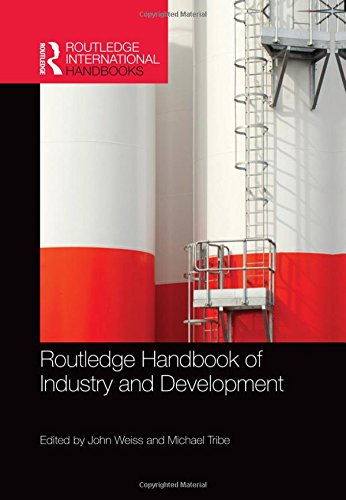

Most ebook files are in PDF format, so you can easily read them using various software such as Foxit Reader or directly on the Google Chrome browser.
Some ebook files are released by publishers in other formats such as .awz, .mobi, .epub, .fb2, etc. You may need to install specific software to read these formats on mobile/PC, such as Calibre.
Please read the tutorial at this link: https://ebookbell.com/faq
We offer FREE conversion to the popular formats you request; however, this may take some time. Therefore, right after payment, please email us, and we will try to provide the service as quickly as possible.
For some exceptional file formats or broken links (if any), please refrain from opening any disputes. Instead, email us first, and we will try to assist within a maximum of 6 hours.
EbookBell Team

4.0
56 reviewsThe Routledge Handbook of Industry and Development is a global overview of industrialisation. Each chapter will provide readers with contemporary insights into this this essential aspect of economic development.
Industrialisation has been at the forefront of discussion on economic development since the earliest days of development economics. But over the last fifty years, the manufacturing sectors of different countries and regions have grown at strikingly different rates. In 1960 developing countries took a very small share of global manufacturing production. Today the position had changed radically with fast growth of manufacturing in many parts of what was originally the developing world, particularly in China and the rest of East Asia. On the other hand, countries in Africa and parts of Latin America have been largely left behind by this process of industrialisation. This volume aims to illuminate this uneven development and takes stock of the current issues that hinder and support industrialisation in low and middle income economies.
This Handbook is a collection of chapters on different aspects of industrialisation experience in a range of countries. Key themes include, the role of manufacturing in growth, the nature of structural change at different stages of development, the role of manufacturing in employment creation, alternative options for trade and industrial policy, the key role of technology and technical change, and the impact of globalisation and the spread of global value chains and foreign direct investment on prospects for industrialisation. Several chapters discuss individual country experiences with examples from India, Mexico, South Africa and Tanzania, as well as an overview of African industrialisation.
This authoritative Handbook will be a key reference source for those studying or wishing to understand contemporary economic development. Offering inspiration and direction for future research, this landmark volume will be of crucial importance to all development economics scholars and researchers.